Storm Desmond: Your questions answered
- Published
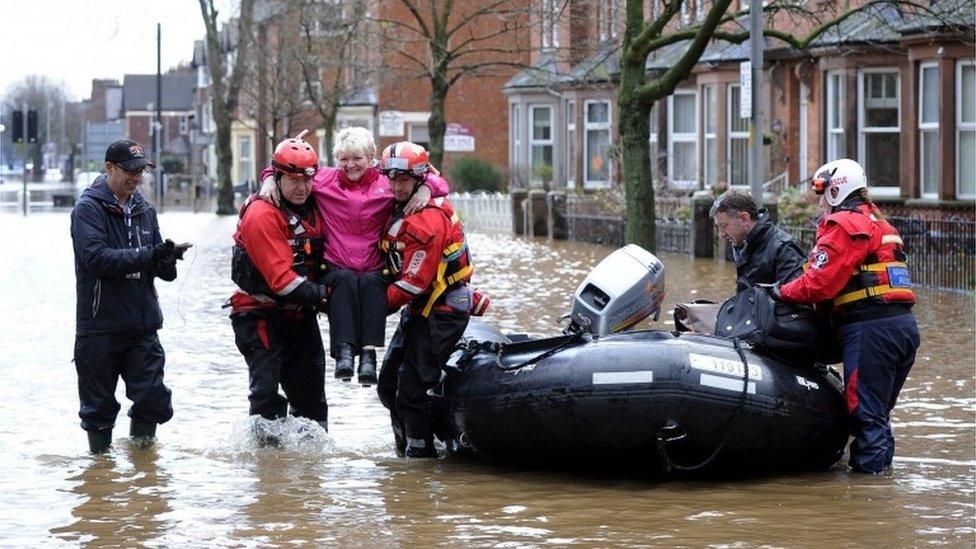

What was Storm Desmond?
Storm Desmond was the Met Office's fourth named storm, external of the season, and brought severe gales and heavy rainfall to southern Scotland, the north of England, Wales and Northern Ireland when it hit on 5 and 6 December.
Rainfall in this storm broke all previous UK records, with the Met Office saying Honister in Cumbria received 341.4mm (13.4in) of rain in the 24-hours between 4 and 5 December.

What damage did the storm cause?
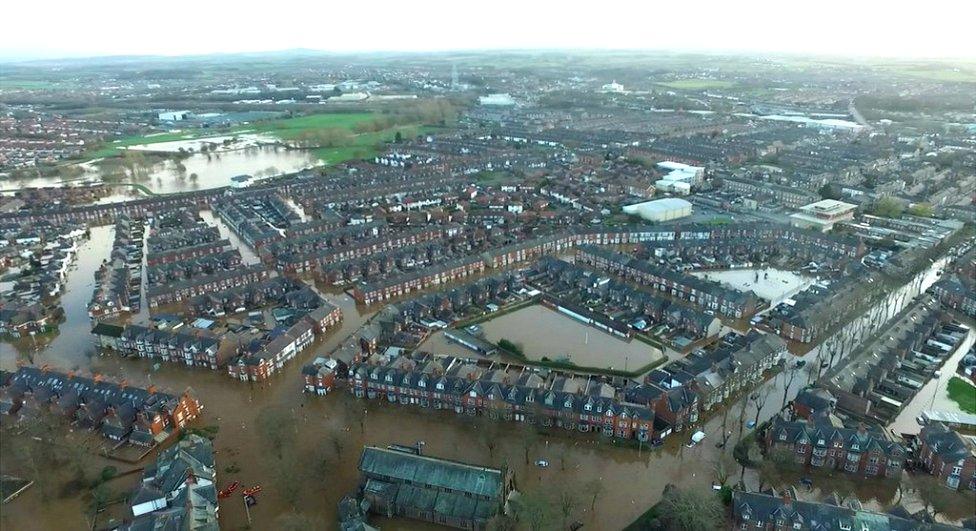
The view over Carlisle when the skies cleared on Monday
There were two main problems caused by Storm Desmond: flooding, which then led to power cuts.
About 5,200 homes were flooded in Cumbria and Lancashire, but tens of thousands more lost power after an electricity sub-station in Lancaster was flooded.
Many schools in Cumbria remain closed because of flooding, power cuts and loss of utilities like water and heating
Lancaster University has cancelled teaching for the rest of term after losing power across much of the campus
Cumbria Partnership NHS Foundation Trust said it would be running only essential services, external because of power cuts and travel disruption
Roads have closed in the worst-affected areas, and more than 100 bridges require inspection after they were damaged or destroyed
Rail services are still experiencing delays or cancellations
In Cumbria, police said a man's body had been recovered from a river, and the body of a 70-year-old man from County Tyrone, Northern Ireland, was found on a road in the Republic of Ireland.

Has this area flooded before?
Yes. Two previous floods hit Cumbria in 2005 and 2009.
Environment secretary Liz Truss said £45m was spent by the government on flood defences in Cumbria during the last Parliament.
A new £4.4m flood defence scheme was constructed in Cumbria in 2013, which included the UK's first "self-closing" flood barriers.
Although rainfall during Storm Desmond was higher than in either of the previous floods, this is not the worst flooding to hit the UK.
About 25,000 flood and storm claims were made to insurers following the 2009 floods, with £174m paid out - and claims of £3.2bn were submitted after the 2007 floods which hit areas across the UK.

Did flood defences work?
Science Editor David Shukman assesses the scale of the damage
Environment Agency officials said the Cumbria flood defences did work, but no matter how substantial any defences are, "you can always get water levels higher than that, in which case it will go over the top".
The Met Office said Storm Desmond had more impact because the "exceptional" levels of rain fell on already saturated land, external.
Environment Secretary Liz Truss said the effect of the existing flood defences was "to delay the impact and reduce the impact", giving people more time to be evacuated and for the emergency services to prepare.
The flood defences that failed over the weekend were now acting as a barrier in the opposite direction, the BBC's Ben Ando said, preventing the flood waters receding as quickly as they otherwise would.

What financial support is there?

The clean-up begins at a shop in Cockermouth
Chancellor George Osborne has announced a £50m fund for families and businesses hit by the floods in Cumbria and Lancashire. This will allow each family to claim up to £5,000 from their local authority to prevent future damage from flooding.
This comes after the government's Cobra committee announced the 5,000 households and businesses affected would be given council tax and business rate relief.
Prime Minister David Cameron said the government would launch the Bellwin scheme to fully reimburse councils for the costs of dealing with flooding, and ministers would review all flood defence plans.
In addition to government aid, a fund set up to raise money, external for those who have been affected by the flooding has reached more than £400,000 in 48 hours.
Meanwhile the Prince's Countryside Fund announced it is releasing £40,000, external from its Emergency Fund, to help rural communities, farmers and businesses in the north of England and Scotland recover from flood damage.

What actions should you take if your property has been flooded?
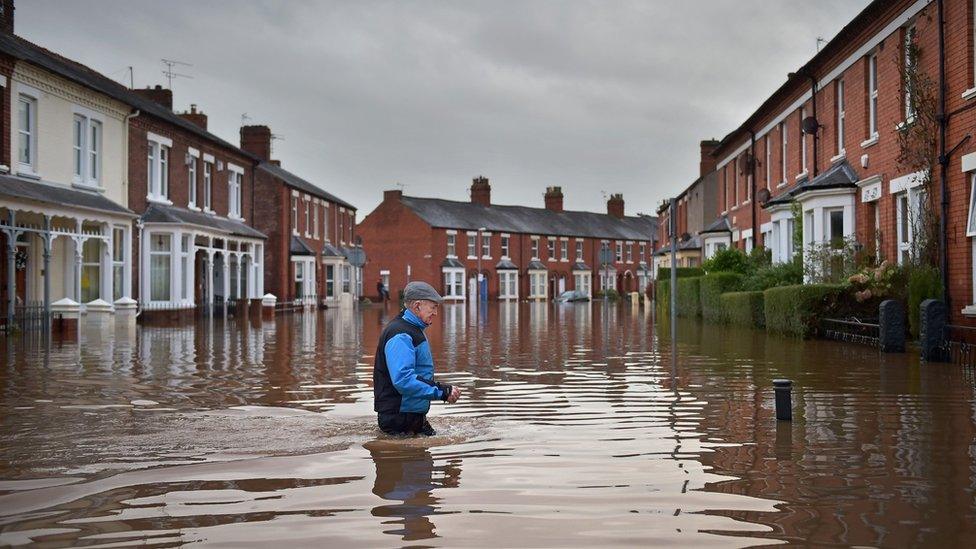
A Carlisle resident makes his way through the floodwater
According to the Association of British Insurers, external, if you have home insurance you should call your insurance provider before you arrange any emergency repairs.
If you have contents cover, your insurer should replace or pay for any possessions that are damaged and cannot be repaired. Without insurance however, repairs are the responsibility of the owner.
Accommodation for those left homeless by the flood the during clean up should be provided by insurance companies, the local authority or landlords.
Once it is safe to start cleaning up, insurers advise, external people to record evidence of the damage caused to their property by the flood.
The Citizen's Advice Bureau has produced a factsheet, external for tenants in rented homes, saying renters have the right for their accommodation to be kept in 'a reasonable state of repair'.
The NHS has issued advice, external on how to clean up hygienically, and what to do with food.

Who is responsible for roads and public spaces?
Clearing sewage and debris from roads and highways should be done by the Highways Authority, external.
Your local council may supply and remove sandbags, external, and should wash sewage and debris away from open spaces, external.

Has funding for flood defences been cut?
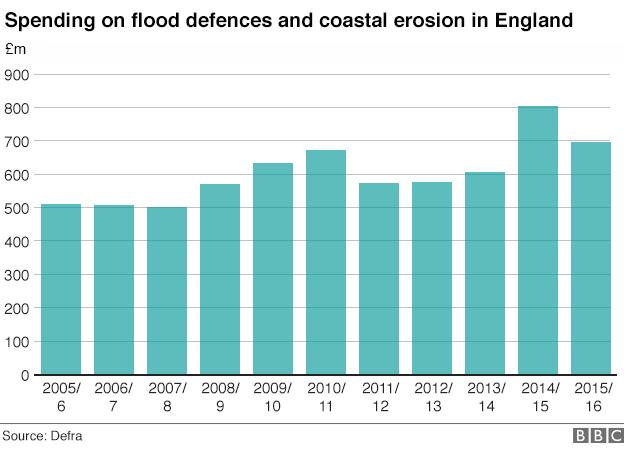
According to Defra figures, there will be a decrease in flood defence spending in England from £802m last year to £695m in this financial year.
Jeremy Corbyn said David Cameron's 2014 vow to increase funding for flood defences "proved to be yet another false promise" as funding was cut last year.
But ministers are maintaining that underlying expenditure hasn't been cut, because last year's figures were inflated by exceptional funding from the Treasury in the wake of winter floods two years ago, BBC political correspondent Iain Watson said.
Liberal Democrat leader Tim Farron - who is also the MP for Westmorland and Lonsdale in Cumbria - said there were questions about "whether it was right to cancel some of the funding for flood defence schemes over the last few years."
Conservative MP Neil Parish, chairman of the Environment, Food and Rural Affairs select committee, said the government needed to inject "real cash" - possibly doubling the current budget.

Is there still a flood risk?
More than 50, external flood warnings and alerts have been issued across England and Wales for the next few days.
The Met Office has also put in place yellow "be aware" warnings for wind and rain across the north of England and Scotland for the rest of the week.
It said seven or eight hours of steady rain was expected by Thursday, which could result in 20-40mm of rain at low levels, 60-80mm on the higher ground.


How can I help the victims of flooding?
Residents in Brunton Avenue, Carlisle, show the BBC's Ed Thomas through their flooded homes
Cumbria County Council said if people had equipment or food they were willing to donate, they should email ppc.emergencyoffersofsupport@cumbria.gov.uk.
It also said those people wanting to volunteer could call Cumbria CVS on 01768 800350.
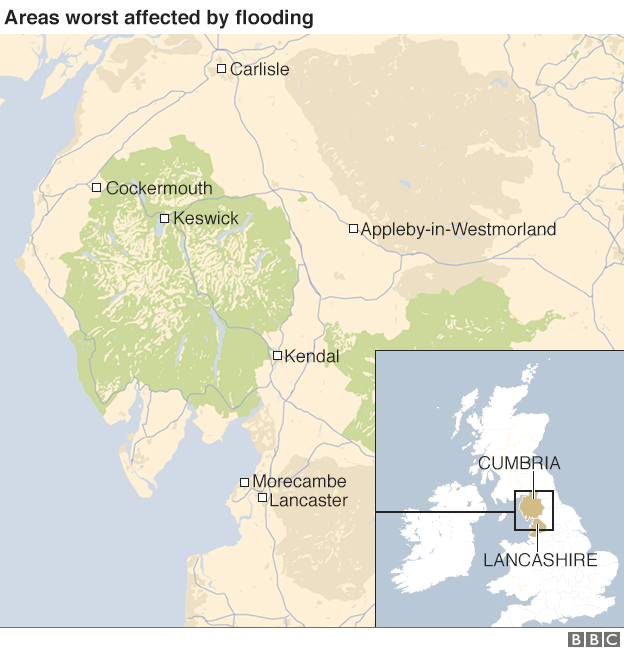
Why does Storm Desmond have a name?
The Met Office worked alongside its Irish equivalent Met Eirann to launch a public campaign to name this year's storms.
The scheme aims to raise public awareness about severe weather and to encourage people to be aware of their safety.
Storms that are given a name are considered to have the potential to cause significant damage in the UK or Ireland.
- Published8 December 2015
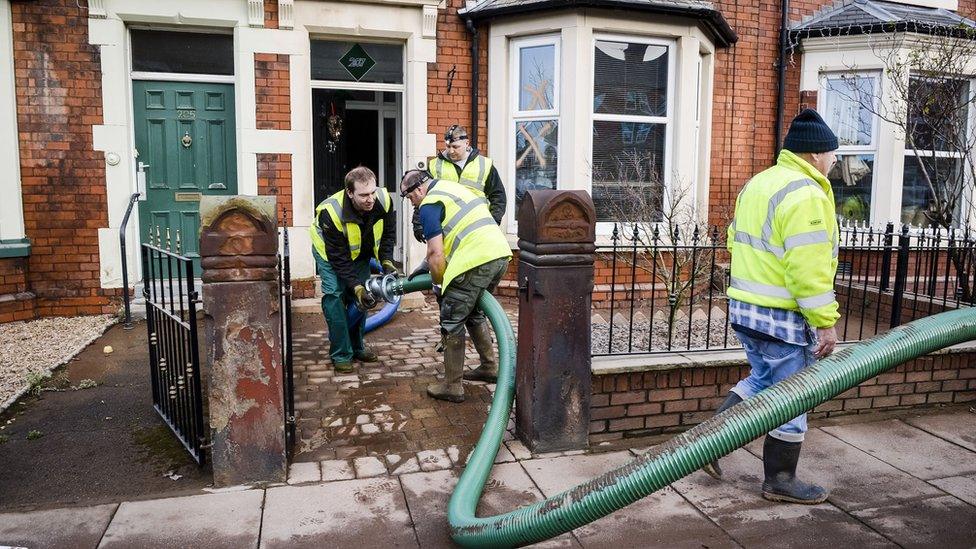
- Published7 December 2015
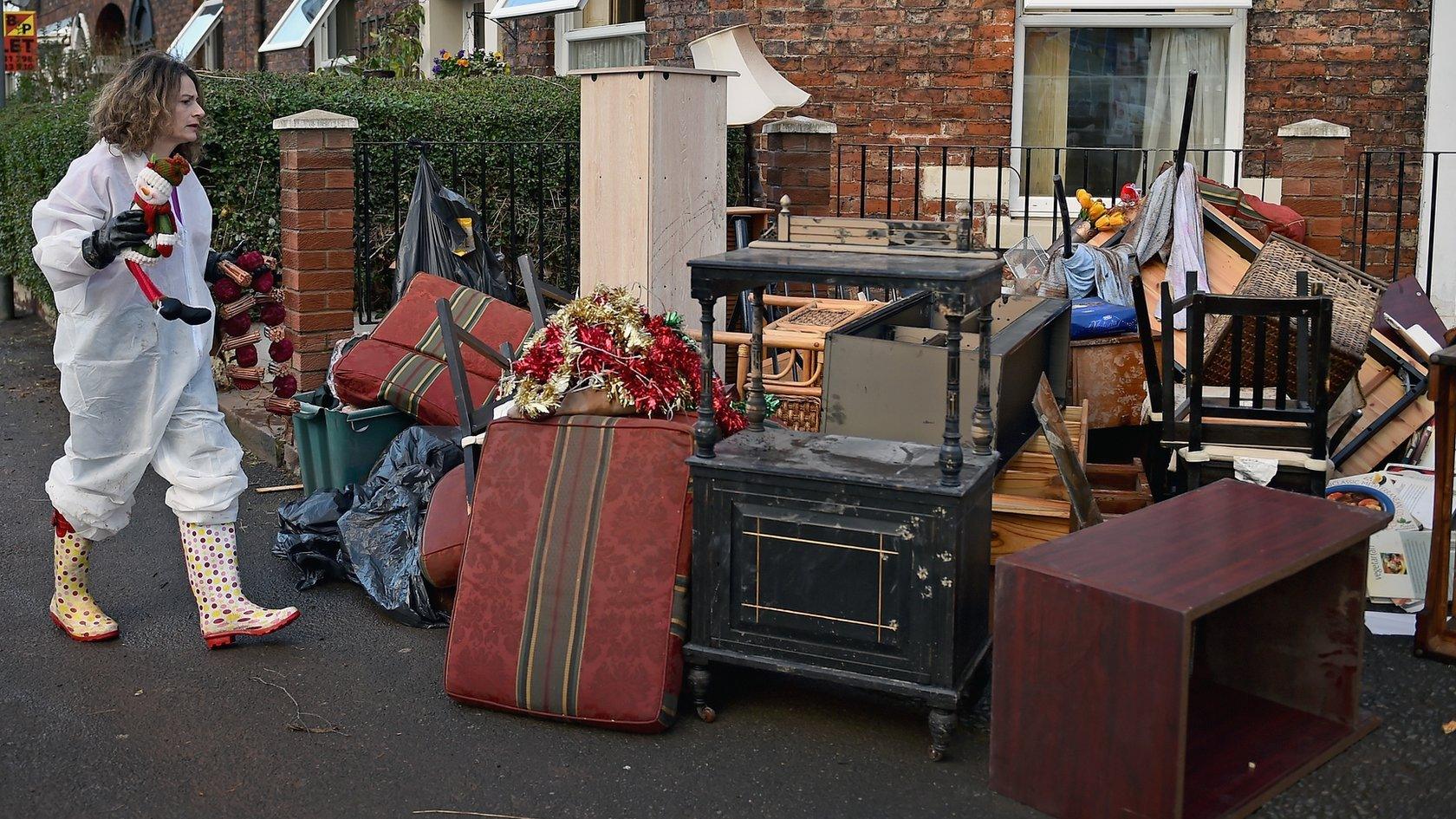
- Published6 December 2015
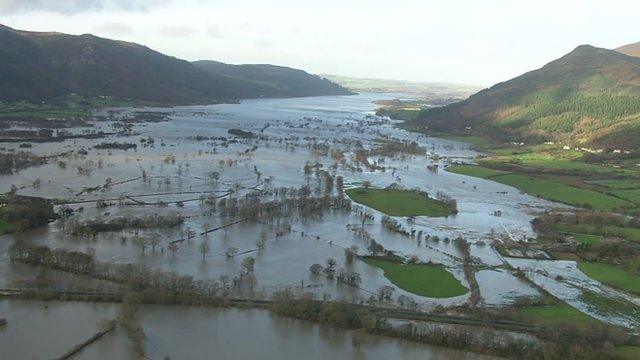
- Published7 December 2015
